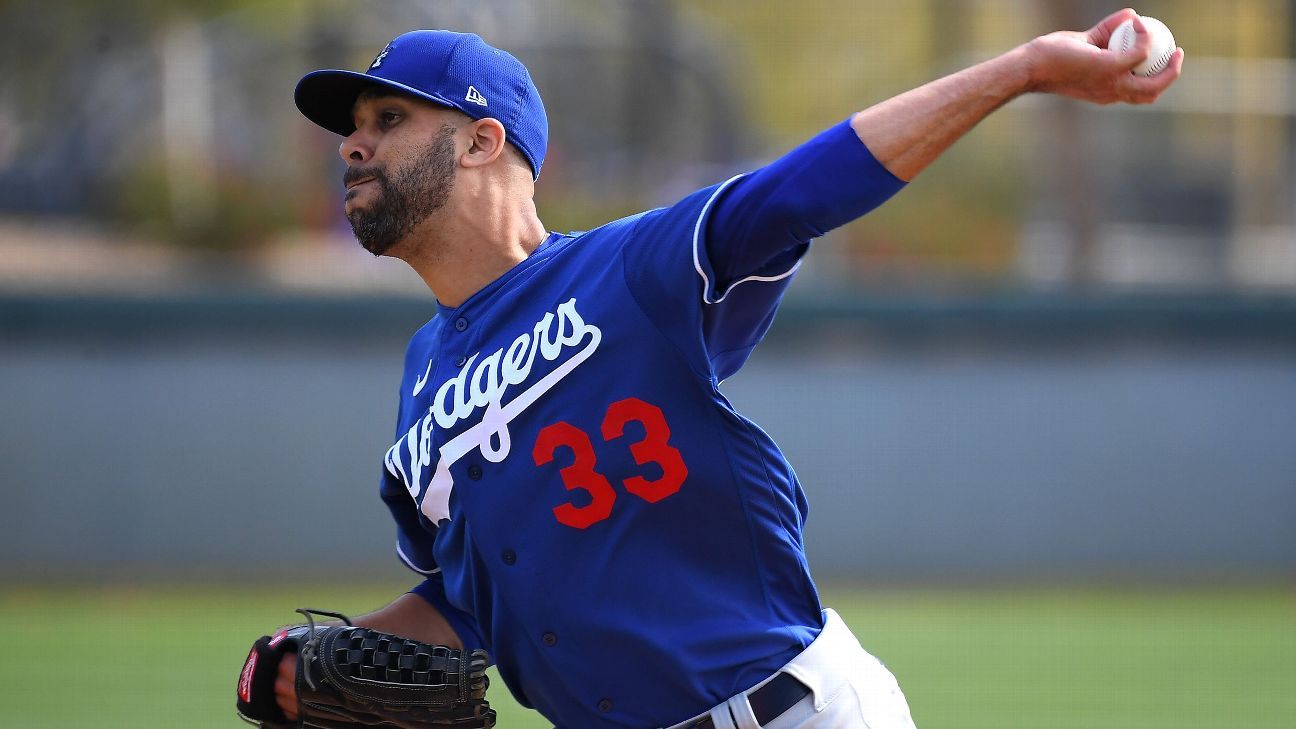GLENDALE, Ariz. — David Price watched the 2020 season as a spectator and was often struck by the talent throughout the Los Angeles Dodgers’ starting rotation. When the offseason progressed and word began to spread that his team might ultimately add Trevor Bauer, the reigning National League Cy Young Award winner, Price knew it would create a significant logjam.
He reached out to Dodgers president of baseball operations Andrew Friedman and delivered a message — if Bauer signs, he’ll take on any role.
“Whatever makes the 2021 Dodgers better,” Price said, “I’m all for it.”
When Price made his spring debut from Camelback Ranch on Monday, retiring all three Chicago White Sox hitters he faced in the fourth inning, the blueprint remained fuzzy.
With Bauer and Price, a five-time All-Star who sat out the COVID-19-shortened season, the Dodgers boast at least seven bona fide starting pitchers. Atop the pecking order are Clayton Kershaw and Walker Buehler. Somewhere near the bottom reside Julio Urias, Dustin May and Tony Gonsolin — all young, all talented, all ready to join a major league rotation.
With Kershaw, Buehler, May, Urias and Gonsolin absorbing a vast majority of the starts in 2020, the Dodgers led the NL in ERA while en route to a World Series championship. Adding Bauer and Price to the mix now gives them an important layer of depth for a year when the entire industry is worried about how to account for the innings jump that comes with increasing the regular-season schedule from 60 to 162 games.
The Dodgers might initially get creative with their starting pitching, perhaps by using two starters per game as a way to limit workloads early on. But their plans remain nebulous.
For now, at least, all eight starters on the Dodgers’ depth chart — a list that includes Jimmy Nelson, who was brought in on a minor league contract — will be stretched out traditionally.
“They all might be a little bit different,” Dodgers manager Dave Roberts said of how he’ll use his starters in April, “but we all see them from that same lens.”
Price, 35, joined the Dodgers alongside Mookie Betts in February 2020 but announced he would opt out of the season five months later, citing a desire to remain close to his family during a tumultuous time. He’ll make $64 million over the next two years, with the Boston Red Sox paying half his salary.
Prior to his most recent outing, Price had logged only 4 1/3 innings in a stretch of 18 months, all of them in spring training.
He was admittedly anxious in the hours leading up to his spring debut.
“Could feel it last night, could feel it yesterday leading up to today,” Price said. “This morning when I woke up, I was excited, antsy while I was on the field. It felt good to get back out there.”
Price began his outing by falling behind in the count 2-0 to White Sox shortstop Tim Anderson, then came back to retire him on a groundout and began to settle down. He followed by striking out Luis Robert and ended the inning by inducing a harmless pop-up to Jose Abreu, the reigning American League MVP.
The stadium radar gun twice clocked Price’s fastball at 94 mph, a couple of ticks faster than his average from 2019.
“I was hoping for 92,” Price said. “I saw the changeup at 86, so I knew it couldn’t have been too bad. Ninety-four — that’s awesome. If I can go out there and be 91 to 93, I can be very effective. If I can get it up to 94 and 95, maybe even more. That’s a good sign.”
